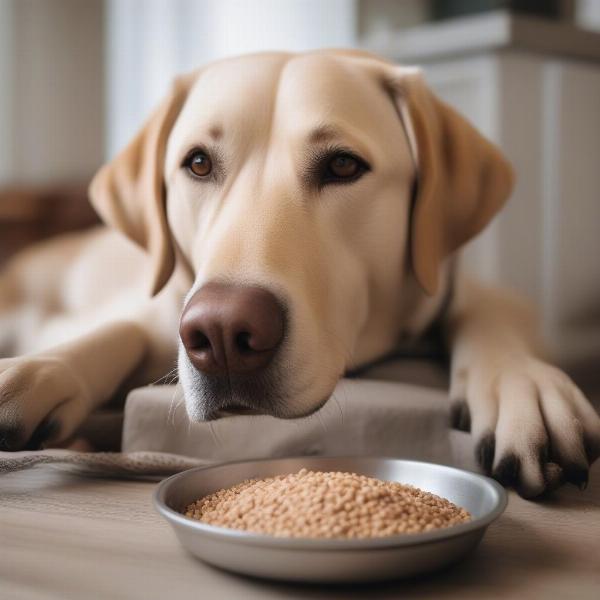Lifestage grain-free dog food has become increasingly popular among pet owners. But with so many options available, how do you choose the right one for your furry friend? This guide explores the benefits, considerations, and frequently asked questions about lifestage grain-free dog food to help you make an informed decision.
Understanding Lifestage Nutrition for Dogs
Just like humans, dogs have different nutritional needs at different stages of their lives. Puppies require more calories and protein for growth, while adult dogs need a balanced diet to maintain their weight and energy levels. Senior dogs, on the other hand, may benefit from lower calorie, higher fiber diets to support their aging joints and digestive systems. Lifestage grain-free formulas are designed to cater to these specific needs, providing tailored nutrition for each life stage.
The Benefits of Grain-Free Dog Food
Many dog owners opt for grain-free food due to potential allergies or sensitivities. Grains like wheat, corn, and soy are common allergens in dogs, and eliminating them from the diet can help alleviate symptoms like itching, digestive upset, and skin problems. Grain-free formulas often feature alternative carbohydrate sources like sweet potatoes, peas, and lentils, which can be easier for some dogs to digest. Additionally, some believe that grain-free diets promote healthier skin and coat, increased energy levels, and better weight management.
Choosing the Right Lifestage Grain-Free Food
When selecting a lifestage grain-free dog food, consider your dog’s breed, size, activity level, and any underlying health conditions. Look for formulas that meet the Association of American Feed Control Officials (AAFCO) guidelines for complete and balanced nutrition. Always consult with your veterinarian to ensure the chosen food aligns with your dog’s individual needs.
Is Lifestage Grain-Free Food Right for My Dog?
While grain-free diets can be beneficial for some dogs, they are not necessary for all. Some dogs thrive on diets containing grains. If your dog is not exhibiting any signs of grain allergies or sensitivities, a grain-inclusive diet may be perfectly suitable.
Transitioning to a New Food
When switching to a new food, gradual transition is crucial to prevent digestive upset. Start by mixing a small amount of the new food with your dog’s current food, gradually increasing the proportion of new food over several days until the transition is complete.
 Senior Dog Eating Grain-Free Meal
Senior Dog Eating Grain-Free Meal
Conclusion
Choosing the right lifestage grain-free dog food can contribute significantly to your dog’s overall health and well-being. By understanding your dog’s individual needs and consulting with your veterinarian, you can select a formula that provides optimal nutrition for a happy and healthy life. Remember to always monitor your dog’s response to any new food and adjust accordingly.
FAQ
- What are the common signs of grain allergies in dogs? Itching, skin redness, ear infections, digestive issues, and excessive licking or chewing of paws.
- Are all grain-free dog foods created equal? No, the quality of ingredients and nutritional balance can vary significantly. Look for AAFCO-approved formulas.
- Can puppies eat adult grain-free dog food? No, puppies have different nutritional requirements and should eat puppy-specific formulas.
- What are some good alternative carbohydrate sources in grain-free dog food? Sweet potatoes, peas, lentils, and chickpeas.
- How do I know if my dog needs a grain-free diet? Consult with your veterinarian to discuss your dog’s individual needs and rule out any underlying health conditions.
- Is grain-free food more expensive than grain-inclusive food? Generally, yes, due to the use of alternative ingredients.
- Can I make homemade grain-free dog food? Yes, but it’s essential to consult with a veterinary nutritionist to ensure a balanced diet.
About ILM Dog
ILM Dog (https://ilmdog.com) is your trusted international resource for expert dog care advice. We offer comprehensive information on dog breeds, health, training, nutrition, and much more. Our team of experts is dedicated to helping you provide the best possible care for your canine companion. For personalized advice or further inquiries, contact us at [email protected] or +44 20-3965-8624.